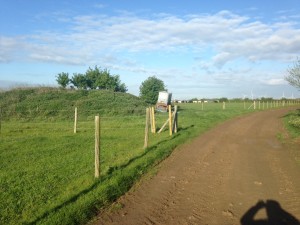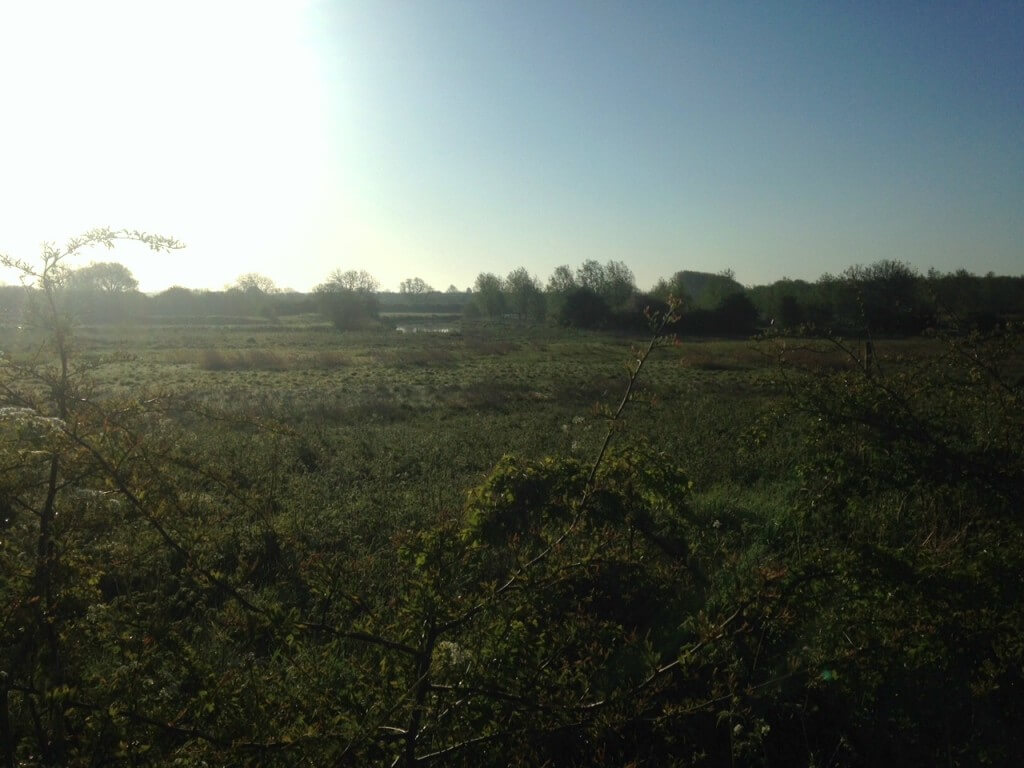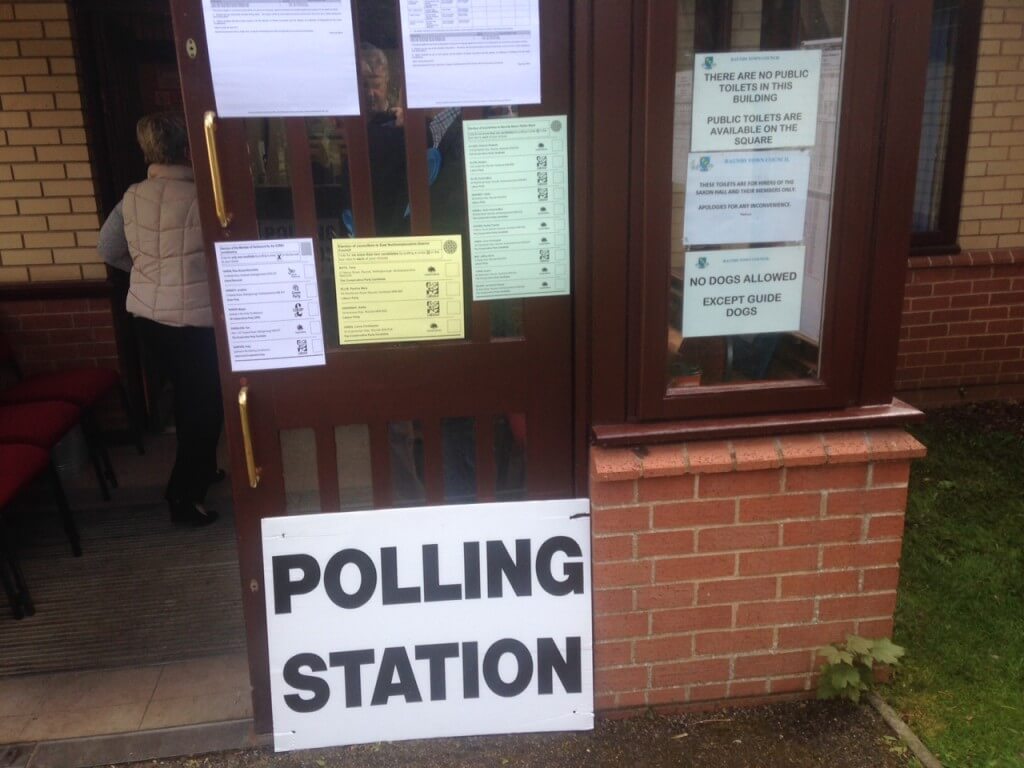Yesterday morning was gorgeous – just perfect for carrying out the first visit to my second BBS square. It was sunny, still and the sky was mostly blue. I felt alive and keen to see what birds were on offer.
I park in a village, in the same place every time, outside some rather attractive large, stone houses (with House Sparrows) and put on my wellies. A Swift flew over and although I had not started recording yet, this seemed a good omen. After a few minutes walk I started recording birds: House Sparrows, Starlings, Collared Doves, Jackdaws and a Song Thrush singing in the usual place.
The house with the cage birds which sometimes have puzzled me momentarily with their strange calls, no longer has cage birds. I missed being puzzled.
As I start the third section of transect I leave the village and am surrounded by fields: some arable but mostly pasture. Common Terns call from the River Nene below me. Whitethroats chatter from bushtops. A Cuckoo sings in the distance.
There are singing Sedge Warblers on the fourth and fifth sections – as usual. Two Lesser Whitethroats fly along the path in front of me without calling or singing. A Moorhen calls, unseen.
A Rook flies over. A Hare runs by.
 At the furthest point from my start there are three round barrows or tumuli. They don’t look anything special, but there is often a Whitethroat singing from an elder bush on the middle barrow – and there is on this sunny glad morning. In the distance, behind these c4000 year-old constructions there are some very distant wind turbines (the ones by the A14 near Kettering) and I’m struck by the mixture of old and new in the landscape. I can see more wind turbines, which weren’t erected when I first surveyed this square a few years ago.
At the furthest point from my start there are three round barrows or tumuli. They don’t look anything special, but there is often a Whitethroat singing from an elder bush on the middle barrow – and there is on this sunny glad morning. In the distance, behind these c4000 year-old constructions there are some very distant wind turbines (the ones by the A14 near Kettering) and I’m struck by the mixture of old and new in the landscape. I can see more wind turbines, which weren’t erected when I first surveyed this square a few years ago.
I take the opportunity to look around and see oil seed rape fields which wouldn’t have been present 50 years ago and a field system that is, maybe 300 years old. The spire of my local church is on the horizon and has been for around seven centuries. This is England – I can see something that has been here for four thousand years and something that has been here for less than four years.
The birds I can see from this point are species that have largely been here for thousands of years and I wonder how many of each I would have seen had I had the luxury of being able to stand and look 50 years ago, a century ago, 500 or 4000 years ago.
Today, I’m pleased to see a tumbling Lapwing displaying over a field with plenty of bare soil. Two Red Kites drift through the air. Yellowhammers sing from the hedgerow and Skylarks sing over the fields. A Stock Dove flies past.
I wander back to the car, along the road, counting the last few birds: a flock of Starlings, two Pied Wagtails, Wrens, House Sparrows,Linnets, Goldfinches, Chaffinches, Carrion Crows and Collared Doves.
As I take off my wellies a Swift flies over and this time I can count it.
It was an exhilarating morning. Not because the birds were spectacular or unusual but because the sun was shining and the birds were just normal. I felt glad to be out. Bird populations are quite conservative – they are pretty stable from year to year. The numbers go up a bit, or down a bit, but I saw no new species for the square even though I saw a good total of 42 in a couple of hours. they were all old friends – they were more or less what one would expect with just enough variation to make life interesting. I was glad to have seen them.
And then I went off to vote for a change of government, which I was glad to do, but not confident that I would get what I feel I need.
[registration_form]


When I was working on a Hampshire farm I remember they marked lapwing nests with a bamboo cane a few yards before getting to it so as not to cultivate over it. I do hope some people care enough to do that still so your lapwings have a chance!
Unfortunately, your lack of confidence in the election result has turned out to be justified. It is hard to see anything positive in the result – another five years of the Tories without even the leavening influence of the Lib-Dems. I can’t say I feel confident at all about what the next five years hold for Britain’s wildlife with the Conservatives in full control of Defra and George Osborne at the helm in the Treasury.
If there is one positive thing it is that UKIP has not made advances into Parliament but their lack of seats hides a very disturbing rise in their share of the vote.